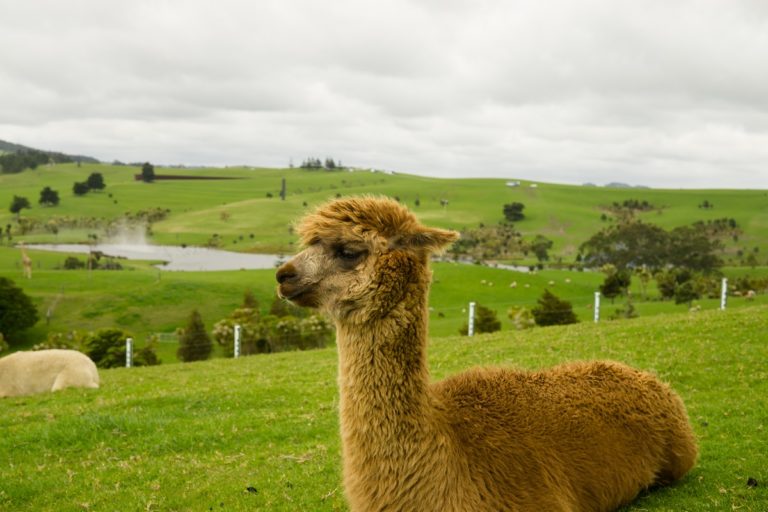Alpacas are part of the camelid family, which also includes camels and llamas. They are classified into two types, namely, Suri and Huacaya. Suri alpacas have long, pencil-like fleece with high lustre while Huacaya Alpacas have compact fleece similar to that of a sheep’s.
Compared to other camelids, alpacas have a more gentle temperament, which makes them an ideal investment for beginner livestock handlers or hobby farmers. However, just like any other livestock, alpacas tend to move away when they sense danger or when their personal space or flight zone is invaded. If you want to start your own alpaca farming business, it is important for you to know and understand the unique herding behaviour of alpacas. Experts at Stockpro™ know that alpacas need to be handled calmly and patiently in order to gain their trust.
Alpaca Farming
 Alpacas are bred mainly for fibre production because they have very soft yet durable coats. Alpaca fleece is also lightweight and hypoallergenic. It also comes in a variety of colours which makes it marketable in the fashion industry. Alpaca fleece is commonly used in making hats, sweaters, gloves, blankets and rugs.
Alpacas are bred mainly for fibre production because they have very soft yet durable coats. Alpaca fleece is also lightweight and hypoallergenic. It also comes in a variety of colours which makes it marketable in the fashion industry. Alpaca fleece is commonly used in making hats, sweaters, gloves, blankets and rugs.
Aside from producing high-quality fleece, alpacas are also used as herd guardians because of their alertness, agility and good eyesight. When an alpaca spots a predator, it produces a loud, high-pitched sound to warn the herd. Alpacas protect flocks from predators such as foxes and smaller dogs by spitting at them, chasing them away or kicking.
Alpaca Handling
Alpacas are extremely herd-oriented, which means that they prefer to stay in groups. While staying in groups makes alpacas easier to move around, this could also be a disadvantage. Catching an alpaca will be a challenge if you want to administer individual inspection, vaccination, treatment or shearing. Having a restraining device or alpaca crush is beneficial for these situations. Building or procuring an alpaca crush specially designed for alpacas will also be a lot safer for you and your alpaca.
Alpaca Care
Responsible livestock handling includes keeping your alpacas safe and healthy. You need to provide alpacas with clean water and shelter to protect them from parasites and worms. Alpacas are also susceptible to facial eczema so you need to keep their beddings clean and dry.
Alpacas are herbivores so they need to be pasture-fed. They mostly eat grass but you can also feed them with leaves, hay, stems or high-quality grains.
Administering vaccination according to the alpacas’ age and conducting routine health checks will also help keep them free from illness. Regularly cleaning their water and food containers will prevent disease and infection. Some signs of illness include sluggishness, abnormal body temperature, loss or change in appetite, loss of hair or excessive scratching. If one of your alpacas is sick, keep them quarantined to avoid spreading the disease.
Keeping alpacas can provide you with lucrative business opportunities, but you can also opt to own alpacas as house pets. You just need to keep in mind that alpacas like companionship so owning at least a pair is recommended.
